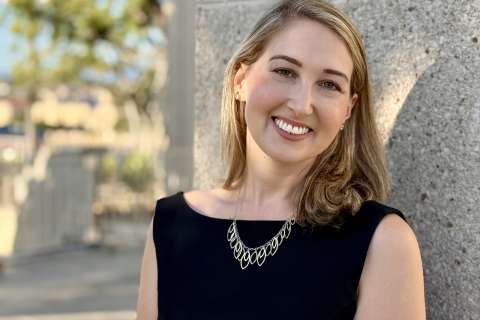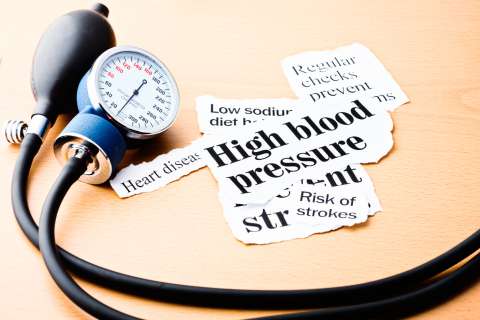Marc Coronel grew up wanting one thing — to be a professional boxer. He programmed his regimen to do exactly that: eating healthy, training three hours a day and never missing a day at the gym.
Then he got hit with the hardest punch he had ever taken — a diagnosis of kidney failure at the age of 26.
“I was an amateur boxer growing up. I wanted to be a professional boxer, so I was always looking up to the greats like Manny Pacquiao and Floyd Mayweather,” Coronel said. “I did everything that it took when it came to training, so when it came to physical fitness I was in great shape.”
A hard-hitting diagnosis
The punch landed in 2011 when Coronel was told he would no longer be covered under his father’s military insurance. However, before getting his own insurance he had to go for a routine physical. It was then that he learned he had focal segmental glomerulosclerosis (FSGS), a rare disease that affects the filters in the kidneys.
“There are three questions that came to my mind,” said Coronel. “'Am I going to die?’ ‘What is that?’ And ‘am I the only one who has it?’”
The first few months following his diagnosis were terrifying, but it also was a wake-up call. Because of his devout training and commitment to physical fitness, Coronel believed he was in great shape. Then he learned that kidney failure can be a silent but deadly illness; Coronel showed no symptoms in the first years following his diagnosis.
After taking 10-to-15 pills a day for the first few years to keep his disease in check, Coronel started to feel the effects of FSGS.
“After seeing the nephrologist who was taking care of me at that time, he told me that at some point in my life I would need a transplant,” Coronel said. “He just couldn’t give me an estimate of when. He said it could be in 10 years or it could be in 15 years, but I knew I was going to need one.”
A physical and psychological fight
In 2017, Coronel told his fiancé, Cindy, that he was not feeling well. He went to the bathroom, urinated and then passed out. He had developed end-stage renal disease — his kidneys had ceased to function on a permanent basis, requiring that he go on dialysis.
Now his fight was as much mental as it was physical. Depression set in, but the athlete and competitor in Coronel kept pushing him forward to exercise and eat right.
Still, it was rough. Despite his commitment to physical fitness, Coronel would need a new kidney if he wanted to be fully healthy again. Finding a living kidney donor would not be easy.
“I asked myself if it was even possible for me to get a donor at this point,” he says. “I started asking people if they would be donors because now I’m on full-blown dialysis and I have nothing to lose,” Coronel said. “A healthy person has a thousand wishes and sick person has just one — to get better.”
Coronel wrote a letter that he titled “Fight of My Life,” and he shared it on social media. People began to respond, and several news-media outlets took notice, as well. Many donors came forward but did not qualify.
The big comeback
In 2019, Coronel learned about the UCLA CORE Kidney Program, founded by Anjay Rastogi, MD, PhD, Clinical Chief of Nephrology at the David Geffen School of Medicine at UCLA. Coronel went to the annual CORE Kidney Health Fair in Santa Monica Beach, and there he met Dr. Rastogi.
“After meeting Dr. Rastogi, I learned about clinical trials, all the research that was happening around kidney health, and even about mental health support, Coronel said. “There were so many resources available that I was unaware of.” He also met ABC-7 News Anchor, Phillip Palmer and Brian Gilliam, both living kidney donors who inspired me and gave me so much hope. My experience at the fair with the UCLA CORE Kidney Team was transformational!

Coronel volunteered with the program and began working with Dr. Rastogi and other kidney-transplant recipients, all the while continuing to hope that he would find a living donor for himself. Dr. Rastogi assured him that he would.
“Marc is definitely a fighter,” said Dr. Rastogi. “But it is important for people to know that not only did he fight, but he also took good care of himself before his diagnosis, which certainly helped him. He also took care of himself after the diagnosis. It’s about being proactive, and it’s about being preventive.”
“Too often, people don’t show symptoms of kidney disease until it is advanced”, Dr. Rastogi said, “which makes it all the more important that everyone keep up with their annual medical exams and lab work.”
...and then a hero comes along
While many people, including his sister, volunteered to donate a kidney to Coronel, none qualified for different reasons. Then his sister texted friends about her brother’s condition. One of them, a former UCLA employee named Shawna Robinson, stepped forward to be evaluated to see if she would qualify to donate to Coronel.
She did.
On December 10, 2019, Coronel received a kidney from Shawna, and immediately his health improved dramatically. The two are very close, and Coronel does not take Shawna’s gift of life for granted.
Today, Coronel is the lead Ambassador of the UCLA CORE Kidney Program, advocating and encouraging other patients with kidney disease in need of a transplant who are walking a similar road to the one he traveled. Because of the pandemic, our in-person beach fairs were switched to virtual events. Recently in March, Coronel had the privilege and honor to be on the same platform with Dr. Rastogi and Phillip Palmer in the UCLA CORE Kidney Health Conference Educational Webinar on World Kidney Day. The reach was global!!!
“I have to be the person who walks the talk,” he said. “It’s about helping others maintain a sense of hope. We’re here for those in need. People just have to reach out to us.”




